Maybe you’ve seen the billboards—the ones where the state is using taxpayer dollars to allegedly take back land from the federal government. But what’s really going on? We know that Utah’s governor and legislature are part of implementing the establishment’s agenda, so we need to ask ourselves, “Why would they try to take land back from the feds?” The answer is actually quite simple: it’s a bait-and-switch scheme.
As reported on October 28th, 12 states have joined Utah in a lawsuit against the federal government to take control of 18.5 million acres of land within the state, something free governments are not authorized to do. All land, except land specifically needed to execute the government’s limited authority as outlined in its constitutions, is to be owned and controlled by individuals. Anything else is a form of fascism or communism.
If the states win this lawsuit, it will mark the official end of the local sheriff’s power. The sheriff, it will be noted, is Constitutionally supposed to be the highest law enforcement officer in a U.S. county.
It all started in 2016 with HB276
Utah’s HB276: Examining the Transfer of Authority from Local Sheriffs to a New Land Management Body
The introduction of 2016’s HB276 in Utah, known as the “Utah Public Land Management Act,” has sparked significant controversy and concern among local law enforcement officials, rural residents, and advocates of constitutional governance. At the core of the debate is a provision in the bill that effectively transfers critical law enforcement responsibilities from locally elected sheriffs to a new tyrannical bureaucracy—the Department of Land Management (DLM). This move has left some Utahns questioning the erosion of sheriff authority and the potential for increased bureaucratic overreach in public land management.
What is HB276?
HB276, sponsored by former Representative Mike Noel (R-Kanab), aims to establish state control over public lands—a continuation of Utah’s long-standing desire to restore federal lands to state management. The bill was presented as a proactive step in allowing Utah to exercise greater autonomy over its land, addressing concerns about federal mismanagement and local economic impact. Yet, despite the bill’s outward appeal to local land rights, a deeper look reveals complex implications for law enforcement jurisdiction and public safety.
One of the most controversial elements of HB276 is its transfer of police powers, starting with public lands, to the new DLM. Rather than local sheriffs remaining the primary law enforcement officers, the bill designates DLM officers as the lead enforcement entity on state-managed lands, decimating the authority of the sheriff to protect the rights of the people.
The Shift in Authority is Alarming
At first glance, HB276 may appear to be a technical reassignment of responsibilities, but this transfer of authority holds deeper implications for local governance and constitutional rights. Sheriffs in the U.S. are typically elected by their communities and serve as a direct line of accountability to the public. The office of sheriff holds a unique place in American law enforcement, particularly in rural areas where sheriffs are often the first line of defense against overreach by state and federal agencies.
By creating an unelected DLM with primary law enforcement powers on state lands, the bill reduces accountability and transparency. Whereas residents can directly hold their sheriffs accountable through the electoral process, the DLM operates within a state bureaucracy that is more insulated from public scrutiny.
In a statement regarding the bill, Dr. Scott Bradley, a constitutional scholar, expressed deep concerns about the DLM’s creation, suggesting it represents a “mini-me” version of the Bureau of Land Management (BLM). According to Bradley, the bill mirrors the federal agency’s operations, granting the state unprecedented control over public lands and enforcement without the direct checks that an elected sheriff provides. He also noted that the bill establishes provisions for fees, regulations, and even an internal adjudication system, creating a tyranny, according to James Madison’s definition:
“The accumulation of all powers, legislative, executive, and judiciary, in the same hands, whether of one, a few, or many, and whether hereditary, self-appointed, or elective, may justly be pronounced the very definition of tyranny.” (Federalist Paper No. 47)
Dr. Bradley further warned,
“It really does create an all powerful Utah Czar of lands… The Americanist way really is stewardship. Individual ownership… The source of all wealth comes from the land… [This is] the very definition of socialism, government ownership and control.”
And as the movie The Patriot so appropriately warns,
“Why should I trade one tyrant 3,000 miles away for 3,000 tyrants one mile away?”.
With the DLM we have a total dictator in our own backyard, without the clamoring of other would-be tyrants to challenge his authority.
Noel tried to defend his tyrannical legislation on the nationally syndicated Kate Dalley radio show, only to expose himself for the wannabe tyrant he is, which you can listen to below:
A Step Toward Centralization
This shift from locally elected sheriffs to a state-appointed agency draws concern for its potential long-term implications. Liberty advocates warn that HB276 mandates broader centralization of law enforcement powers in Utah, particularly on lands managed by the state. This centralization will clearly undermine local autonomy and put Utah on a path toward a total police state.
This move to form a state policing entity on public lands has broader implications for how Utah, and potentially other states, may handle disputes between local and state authority. By establishing a precedent where state agencies supersede locally elected officials, HB276 could influence future legislation beyond public lands, potentially shifting the balance of power away from locally accountable leaders.
On lines 350-355 it gives authority to an unelected bureaucrat to employ Department of Land Management (DLM) police officers who, “will be the primary law enforcement authority with jurisdiction on public land”. The local sheriff isn’t just subverted at these “special” times when the director of the DLM deploys this special regional police force. HB276 states that, “Conservation officers employed by the Division of Wildlife Resources are the primary law enforcement authority with jurisdiction on public land to enforce the laws.”
Lawmakers tried to placate any fears by stating in the bill that the law cannot “be construed as enlarging or diminishing the responsibility or authority of a state certified peace officer”. However, understanding jurisdiction is important to seeing through this smokescreen. HB276 gives PRIMARY authority to these regional policing bodies, automatically putting any local sheriff in a back seat position to defending the rights of the people on land usurped by a government agency.
A Step Toward Centralization
If you needed proof that this was a Trojan horse of a lawsuit/legislation, Mr. Globalist himself, Mitt Romney, supports this movement to destroy the power of the sheriff and create a total dictatorship over land in the west.
According to LaVoy Finicum, who was murdered by the FBI and Oregon State police in cold blood, the bill’s author uses deception to get power away from the people and into the hands of government dictators:
“Mike Noel, and this group found out about this, and they ran out there the next week saying ‘No, no! Give us more time. We will get this done. Don’t do that.’ And so it took the steam out of it, and that could have been the first full county, because they have the sheriff behind them, they could have been the first whole county in the Union to throw off this federal chains…” (KTALK Radio, Feb 2016)
Calls for Action
The US Constitution prohibits the central government from owning any land except for the very limited scope of “forts, magazines, arsenals, dockyards, and other necessary buildings [in pursuance of the limited powers of the central government delegated in the Constitution].” (article 1 section 17)
Since the feds refuse to stay within their bounds, and since the state legislatures refuses to enforce the Constitution, it is up to the people to enforce it, that is, if they care about the rule of law.
Conclusion
If the courts rule in favor of turning over the land to state control, another form of communism, the sheriff will be relegated to nothing more than a figurehead. The people are the last hope for enforcing the Constitution.
As Thomas Jefferson said regarding our duty when the government violates the law:
“[W]here powers are assumed which have not been delegated, a nullification of the act is the rightful remedy.” (The Papers of Thomas Jefferson, Volume 30: 1 January 1798 to 31 January 1799, Princeton University Press, 2003, pgs. 536-43)
Learn more about the overarching implications of this globalist agenda in the reports below.
Help support ad free content with a one time donation or becoming a member today.
Thank you to our sponsors
https://connollyandsonsconcrete.com/
https://www.dentistry4health.org
http://www.highercallingfirearms.com
http://www.americanappliancehvac.com
https://insurewithcompass.com/sbarlow.html


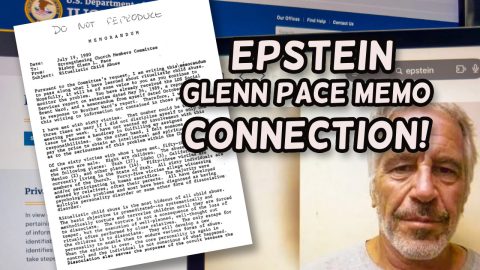
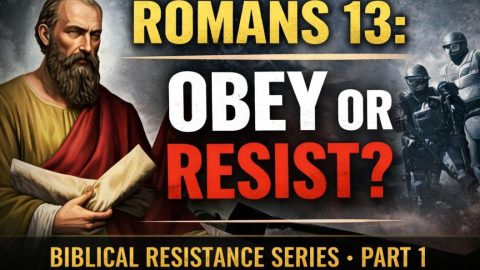
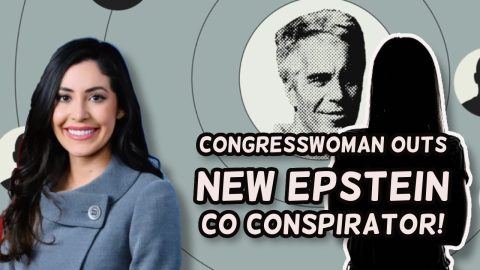



One Response
Wowser, huge takeover without a vote; without the vote of the people … unbelievable … needs to be stopped immediately